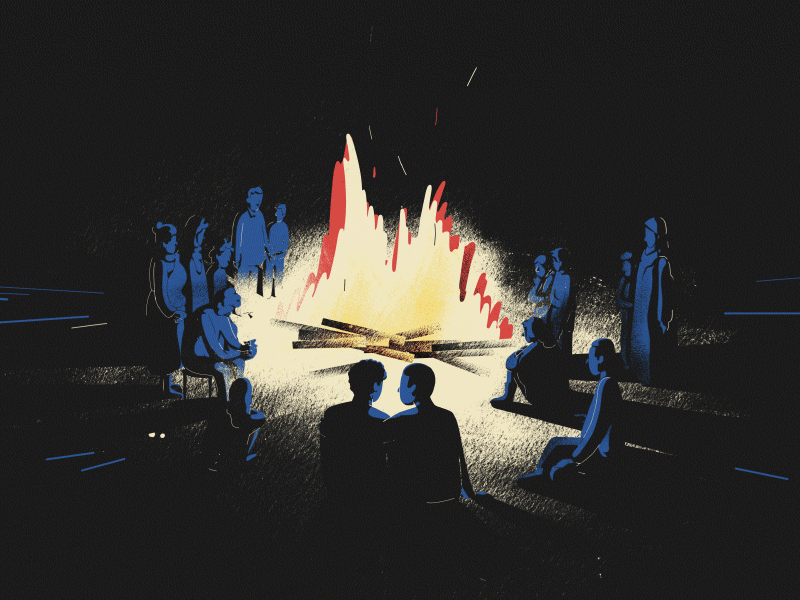
The Sri Lankan civil war, which lasted from 1983 to 2009, resulted in the displacement of hundreds of thousands of Sri Lankan Tamils, many of whom fled to neighboring India seeking refuge. These refugees have been living in India for decades, and many of them have even given birth to their children in India. However, the situation of the Sri Lankan Tamil Refugees has become increasingly uncertain with the introduction of The Citizenship Amendment Act (CAA) and the National Register of Citizens (NRC) by the Indian government.
The CAA grants citizenship to refugees from Pakistan, Bangladesh, and Afghanistan, who are of Hindu, Sikh, Jain, Buddhist, Parsi, or Christian faith, and who arrived in India before December 31, 2014. However, Sri Lankan Tamils, who are predominantly Hindus and Christians, and who arrived in India before this cut-off date, are not included in the act. This exclusion has led to fears among the Tamil refugees that they may not be able to obtain Indian citizenship, which would leave them stateless.
Furthermore, the NRC, which aims to identify illegal immigrants in India, has caused further anxiety among the refugees, as they are afraid that they may be declared as ‘illegal immigrants’ and could face deportation. The Indian government’s policies towards Sri Lankan Tamil refugees, including their legal status and access to basic amenities, have also been a cause for concern.
This research paper will explore the strange situation of Sri Lankan Tamil refugees and the question of NRC and the Citizenship Amendment Act, 2019.
The Backdrop
The Liberation Tigers of Tamil Eelam (LTTE) was a separatist militant organization that sought an independent Tamil state in Sri Lanka’s northern and eastern regions. From 1983 to 2009, this conflict, known as the Sri Lankan civil war, lasted over 26 years. Despite significant cultural and linguistic differences, the British colonial authority of Sri Lanka considered the majority Sinhalese and minority Tamil people as equals. Upon gaining independence from the British in 1948, Sri Lanka established a variety of discriminatory policies towards the Tamil minority, including declaring Sinhala the sole official language and denying Tamils of Indian heritage the right to vote. As a consequence of these actions, tensions between Sinhalese and Tamils escalated.
In the early 1970s, the LTTE and other Tamil nationalist groups supported the creation of independent Tamil states in the north and east of the country. After the assassination of 13 Sri Lankan soldiers by Tamil separatists in 1983, chaos erupted across the country, killing thousands of Tamils and forcing more than 100,000 people from their homes. The Liberation Tigers of Tamil Eelam (LTTE) has emerged as the most powerful Tamil guerrilla movement, waging a violent campaign against the Sri Lankan government, committing suicide bombings, assassinations, and other acts of violence to further its aims.
The Sri Lankan military responded with violence, evicting hundreds of thousands of Tamils from their homes in the north and east of the country and committing serious human rights crimes. In 2009, Sri Lankan government forces crushed the LTTE in a final operation, killing tens of thousands of civilians and displacing hundreds of thousands of people before the conflict ended. The battle has scarred Sri Lankan society and made increasingly clear the need for a political solution to the problems faced by the Tamil minority.
Legal Status of Sri Lankan Tamil Refugees

Most of the Sri Lankan Tamils who took asylum in Europe, the USA, Canada, and Australia have been locally integrated, as those countries are signatories to either the Refugee Convention or its Protocol. India, which is not a signatory to the 1951 Geneva Convention, has no special legal framework for refugees or asylum-seekers and treats them only as “illegal migrants”. The Citizenship Amendment Act (2019) did not include the Sri Lankan refugees from its purview – much to their chagrin. Hence, those refugees in India have been stuck in limbo for around 40 years – despite their ethnic affinity with the host community.
Impact of Citizenship Amendment Act on Sri Lankan Tamil Refugees

The CAA provides a path to citizenship for certain non-Muslim minority groups who entered India illegally from Afghanistan, Bangladesh, and Pakistan before December 31, 2014. Sri Lankan Tamil refugees, who are mostly Hindu and Christian, were not included in the CAA. The CAA’s impact on Sri Lankan Tamil refugees is primarily indirect, as it has sparked concerns about the Indian government’s broader approach to refugees and citizenship. Some fear that the CAA’s exclusion of Muslim refugees may set a precedent for the exclusion of other groups in the future. Moreover, the CAA has raised concerns among Sri Lankan Tamil refugees about the possibility of deportation or statelessness.
While Sri Lankan Tamil refugees are recognized as refugees under Indian law and are protected from refoulement, they do not have a path to citizenship in India. The CAA’s emphasis on providing citizenship to certain religious groups has fueled concerns that Sri Lankan Tamil refugees could be left in limbo without the prospect of citizenship in either India or Sri Lanka. The Indian government has stated that the CAA does not impact the legal status of Sri Lankan Tamil refugees and that they will continue to be protected under Indian law. However, the broader implications of the CAA for refugee and citizenship policies in India have raised concerns among Sri Lankan Tamil refugees about their long-term prospects in the country.
Probable Impact of CAA on Sri Lankan Tamil Refugees

The National Register of Citizens (NRC) is a controversial initiative in India that seeks to identify and expel illegal immigrants from the country. While the NRC has primarily been focused on identifying illegal immigrants from Bangladesh, there is concern that it could have an impact on Sri Lankan Tamil refugees as well. Sri Lankan Tamils are a minority group from Sri Lanka who have been displaced due to the country’s civil war. Many of them have sought refuge in India over the years, and some have been living there for decades. The concern with the NRC is that it could lead to the exclusion of Sri Lankan Tamil refugees who may not have the proper documentation to prove their citizenship. This could leave them vulnerable to deportation or statelessness.
Additionally, the NRC has been criticized for its potential to be used as a tool of discrimination against Muslims and other minority groups in India. This could also impact Sri Lankan Tamil refugees who may be Muslim or belong to other minority groups. It is important to note that the impact of the NRC on Sri Lankan Tamil refugees is still uncertain, as the initiative is primarily focused on identifying illegal immigrants from Bangladesh. However, there is concern that it could have unintended consequences for other vulnerable groups, including Sri Lankan Tamil refugees.
International and the Human Rights Law

The 1951 Refugee Convention and its 1967 Protocol provide the foundation of international and human rights law concerning refugees. These accords define governments’ rights and obligations in relation to refugees and provide a legal framework for their protection. Non-refoulement is a cornerstone of international law that protects refugees. Following this guiding principle, states may not return asylum seekers to a place where they may face persecution, torture, or other serious harm.
Since it is a customary norm of international law, states are bound to observe the principle of non-refoulment whether or not they have signed the Refugee Convention. International human rights law also protects refugees from persecution by making it illegal to discriminate against people based on their race, religion, nationality, or other characteristics. In practice, this means that refugees have the legal right to be treated fairly and without discrimination. In addition to these international agreements, refugees are protected by regional human rights treaties.
The European Convention on Human Rights and the American Convention on Human Rights, for example, protect refugees and asylum seekers. Nations’ rights and obligations to refugees, including the right to non-refoulment and the right to be free from discrimination, are defined and articulated in international and human rights law.
Recommendations
Sri Lankan Tamil refugees in India face a number of challenges, including limited access to basic services such as healthcare and education, restricted freedom of movement, and lack of legal status, which can leave them vulnerable to exploitation and abuse. Here are some recommendations for the Indian government and international organizations on how to address these challenges and protect the rights of these refugees:
- Grant legal status and documentation: The Indian government should provide legal status and documentation to Sri Lankan Tamil refugees, which will help to protect them from exploitation and abuse, enable them to access basic services, and allow them to work and support themselves and their families.
- Improve access to basic services: The Indian government and international organizations should work to improve access to basic services such as healthcare and education for Sri Lankan Tamil refugees. This could involve providing funding and resources to support the provision of these services in refugee communities.
- Protect freedom of movement: The Indian government should work to protect the freedom of movement of Sri Lankan Tamil refugees, which is often restricted due to the lack of legal status and documentation. This could involve relaxing restrictions on travel and providing support for refugees to move freely within the country.
- Ensure protection from discrimination: The Indian government and international organizations should work to ensure that Sri Lankan Tamil refugees are protected from discrimination on the basis of their ethnicity or status as refugees. This could involve raising awareness among the general public about the rights of refugees and providing training for law enforcement officials and service providers on how to recognize and address discrimination.
- Provide support for integration and resettlement: The Indian government and international organizations should provide support for the integration and resettlement of Sri Lankan Tamil refugees, including access to vocational training and employment opportunities, as well as assistance with housing and other basic needs.
Conclusion
The situation of Tamil refugees in India is complex, and the implementation of the National Register of Citizens (NRC) and the Citizenship Amendment Act, 2019 (CAA) has added another layer of uncertainty for these vulnerable populations. While the NRC and CAA primarily target illegal immigrants from Bangladesh, there are concerns that Sri Lankan Tamil refugees may be impacted as well, potentially leading to their exclusion and deportation. It is important for the Indian government to ensure that the implementation of these policies does not result in the violation of the rights of Sri Lankan Tamil refugees, including their right to non-refoulement and protection from discrimination.
The government should ensure that the screening process for the NRC and CAA takes into account the unique circumstances of refugees and asylum seekers and that they are not unfairly targeted or excluded from the process. International organizations also have a role to play in protecting the rights of Sri Lankan Tamil refugees in India. These organizations should continue to monitor the situation and advocate for the protection of refugees and asylum seekers, including by providing legal and humanitarian assistance to those in need.
Ultimately, the situation of Sri Lankan refugees in India requires a comprehensive and coordinated response from all stakeholders, including the Indian government, international organizations, and civil society, to ensure that their rights are protected and that they are not subjected to discrimination or harm.